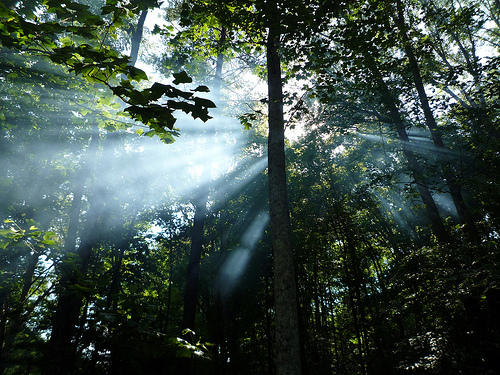Suddenly, unexpectedly, there is a ray of hope in the air, hope that a significant global climate deal may yet be struck at December’s talks in Copenhagen. It could herald the start of a successful agreement, or it could dissolve just as rapidly into despair. And the coming week will do much to determine which.
Key high-level meetings, starting Thursday and running until Friday next week, offer an unprecedented — and probably unrepeatable — chance to inject political will into the bogged down international negotiations.
But back to that rare ray of optimism. The last session of international climate negotiations, in Bonn in August, got virtually nowhere, just like two others before it, leaving 2,500 points of disagreement to be settled in just 15 days of negotiating time before the delegates assemble in the Danish capital.
Yvo de Boer, the Executive Secretary of the UN Framework Convention of Climate Change and under whose auspices the international talks are held, warned that, at the present rate, “we are not going to make it.”
But late last week the phlegmatic Dutchman was sounding much more cheerful. On Friday he told the news agency AFP, on the fringes of a World Economic Forum meeting in China, that he was now “confident we can reach a significant agreement” in December.
And Kim Carstensen, leader of the WWF Global Climate Initiative and one of the most respected NGO representatives, told me on Tuesday that the chances of getting a valuable, if not perfect, agreement are now “more than fifty-fifty.”
Much of the change of mood, as indicated in this column last week, has been brought about by what de Boer calls “the dramatic change of position” by Japan, following the landslide election victory by the opposition Democratic Party. The new prime minister, Yukio Hatoyama, who had campaigned on climate change, promptly announced that this country would cut emissions by 25 percent by 2020, replacing the outgoing government’s more modest target. European negotiators privately said last week that this would pressure the EU to raise its own target from 20 to 30 percent, as it has long promised to do if other countries undertook similar commitments.
A second reason for hope has emerged from the EU itself. The European Commission last week concluded that some $145 billion would be needed be developing countries by 2020 to reduce their own emissions and to adapt to climate change. It proposed that Europe should provide between $3 billion and $22 billion, with the rest coming from other developed nations (including the United States), the international carbon markets and the developing countries themselves. This falls far short of what developing countries want, but has lightened the atmosphere, because after twice refusing to do so, the EU is finally starting to put money on the table.
And third is a new attitude in China, where the country’s top leaders have been privately promising senior U.S. visitors that the giant country will be “a constructive and positive force” at Copenhagen. Detailed bilateral talks are continuing with hopes of a breakthrough when President Obama visits in mid-November.
Not everyone is voicing optimism. “The Copenhagen deal is hanging in the balance,” British Foreign Secretary David Miliband said last week, adding that there is a “real danger” of failure. One key concern is whether the UN talks — and the people participating in them — can bear the weight of such complex negotiations. Traditionally, the negotiators keep their cards to their chest until the very last minute, only cutting a deal in the early hours of the last night. But many feel that this will just not work in December.
Hence the hopes that the coming week will provide a much needed push. First, on Thursday and Friday comes a meeting of ministers — the 16-nation Major Economics Forum, the first gathering of the group since their heads of government met in Italy in July and agreed on a 2 degree maximum temperature rise. It is hoped that the MEF will now start to flesh out that agreement.
On Monday there is a summit of the Alliance of Small Island States, small countries but ones that carry much moral authority when they unite, because of their extreme vulnerability to climate change. It is hoped they will come out with a strong position.
Then on Tuesday, leaders of the world’s nations meet at the UN in New York for a climate summit, spending part of it in small groups with just a single official each. No great negotiating breakthroughs are expected, or sought, but the aim is to generate new momentum by making it clear to the UN talks that the must succeed.
On Wednesday there will be a small meeting of leaders on cutting emissions from deforestation, and then — for the next two days — the baton will pass to the G20 summit of developed and leading developing countries in Pittsburgh. Unfortunately, at developing countries’s insistence, climate has been moved down the agenda of the summit, but there is still an opportunity to move things forward.
“We are now,” says one top European official, “at the beginning of the end game.” So perhaps we should be grateful that, at least at this point, there is that small ray of hope.


